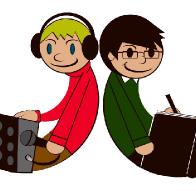Draft Guidelines for Volunteers
I am now beginning to think about making some draft guidelines that members of our network can use as a reference, if needed or wanted, when making a volunteer offer or request.
Comments on this draft are welcome from members of this group. I envisage a series of guidelines, for different communication-related activities. We can begin with Part I. Later parts may cover Reading and Review, Translation and Transcription, Illustration, IT support, and so on.
Research Cooperative Guidelines, Part 1: Editing and Proofreading
Preamble
1. Responsibilities of authors
2.Responsibilities of volunteers
3. Deadlines and schedules
4. Rewards for authors
5. Rewards for volunteers
Conclusion
In our usual academic life, it is common for existing friends and colleagues to help each other with editing and proofreading, when there is already a clear way for the recipient of help to show appreciation, by expressing thanks face to face, by providing food and drink, or by providing similar help in return. The supervisors of graduate students may sometimes give such help to their students, partly to help the student, and partly to make sure that a research project reaches completion, for the benefit of all involved. Senior staff may also give the benefit of their experience to junior staff in a department, in order to help raise the general standards of research and writing in the department. Or a specialist may review a section of writing for which they have contributed data, and possibly initial authorship, in order to make sure that his or her part of a complex project is properly reported.
Here at the Research Cooperative, we cannot provide such a close and supportive environment for every situation that arises when our members make contact with each other. All we can do is provide diverse channels for members to (a) find each other and (b) discover sufficient common interest to actually provide volunteer help and accept such help. I suspect that some researchers have the feeling that there is something dishonorable about receiving help with writing, even if they are happy to receive help from the many technical services that research ultimately depends upon.
The essential problem here is that the distinction between an original intellectual contribution, and a technical service in the form of production of a clearly written text, is not always clear. Often it is not, and this is not a bad thing. What matters is the quality of the resulting published work, and the proper recognition and reward for all contributions to the work.
It is not dishonorable to receive help. It is dishonorable to not acknowledge help, and to not give support back to the people providing help. Building an effective network of human relations around the doing and communication of research is also an honorable effort, in which all parties can enjoy taking part.
Editors and even proofreaders may have sufficient understanding and intellectual clout and confidence to say things that an author does not want to hear, but should hear, or they may struggle to improve the writing of a text that they are not able to understand. In either case, the author will ideally not attack the messenger, but will reflect on the value, at one level or another, of the comments and suggestions made.
At one extreme, the author might embrace the editor as a colleague, and invite them to be a co-author, in recognition of subtantial intellectual input. At the other extreme, the author might be wise to consider whether the poor understanding and advice of an editor or proofreader is not just a matter of incompetence, to be scorned and ignored. Even if person offering advice gets it wrong, and cannot solve a problem in expression, the author should recognise the possibility that there is a problem in expression, and take matters into his or her own hands. The fact that another person struggles to understand a particular section of text gives the author an opportunity to reconsider the expression of an idea, or sequence of ideas.
This preamble is a long way of saying that authors should be patient with editors and proofreaders, and vice versa.
When one person comments on the unpublished writing of another person, the situation is inherently dangerous, in emotional terms, because neither party may be experienced in how to discuss such writing without falling into conflict. There needs to be some kind of prior understanding, on both sides, of aims and expectations, and degree of trust, before work begins. Or both sides need to be flexible, and should try to learn something about each other quickly, as work proceeds, so that a comfortable working relationship can develop.
These suggestions apply not just to situations in which the help offered or needed is volunteer help. They also apply to situations where a fully paid, professional service is being offered or requested.
***
That's it for now - a preamble only. In my next message, I will try to move onto the next section, the 'responsibilities of authors'.


